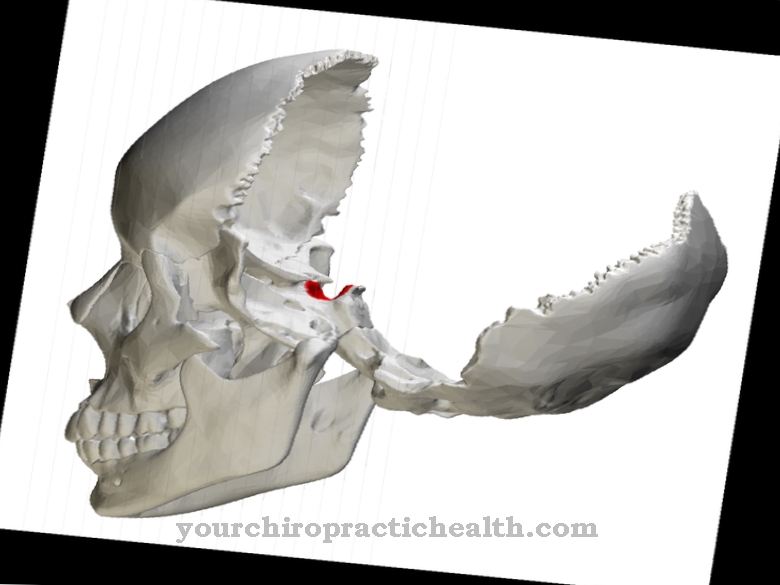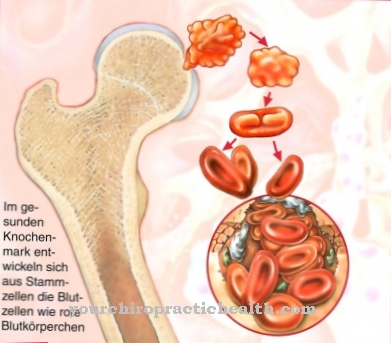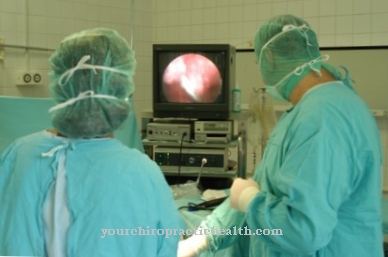As Nephrology will the Nephrology derived from the Greek word nephros for the kidney. It is a medical discipline that focuses on possible diseases, diagnoses, therapies and functions of the kidneys. This makes nephrology an important area of internal medicine.
What is nephrology?

Put simply, nephrology is internal medicine, whereas a urologist performs surgical interventions on the kidney and specializes in the treatment and diagnosis of the lower urinary tract and the male genital area. In nephrology, the focus is on diseases especially in the area of the kidneys, but also on the effects of disorders in kidney function.
The purpose of nephrology is to treat kidney diseases with conservative, non-surgical therapy. The specialist area of the nephrologist lies in diagnosis and treatment, but also in advice. Patients with hypertensive and kidney diseases can find advisory support and advice on prevention at the nephrologist.
Another aspect of nephrology is the stabilization of the function of the kidney balance, but also the monitoring of secondary diseases such as changes in the water and blood salt balance, kidney replacement procedures and blood purification. The care of those affected who have high blood pressure is known as hypertensiology and is one of the most important areas of nephrology.
Treatments & therapies
Nephrology covers a wide range of clinical pictures. These include symptoms such as high blood pressure and disorders of the water and electrolyte balance of the human organism and the acid-base balance, partly as a secondary disease. Glomerulopathies in acute, subacute and chronic form are diseases of the kidney corpuscles.
Interstitial nephropathies are inflammatory diseases of the kidneys. The kidneys are involved in a variety of systematic diseases such as diabetic or hypertensive nephropathy, plasmacytoma or rheumatic diseases. Goodpasture syndrome is an immune system disorder that involves the kidneys. There are also diseases of the kidney that are hereditary, such as cystic kidneys, the medullary sponge kidney or various metabolic diseases that are associated with kidney dysfunction such as Wilson's disease, Fabry's disease or Lowe's syndrome.
The specialty of nephrology includes high-pressure diseases such as primary or renovascular hypertension or renal artery stenosis. Pregnancy can lead to hypertension or kidney dysfunction, which are also part of the core area of nephrology. Metabolic alkalosis and acidosis as well as disturbances of the potassium, chloride, phosphate, sodium and calcium balance are metabolic disturbances of the acid-base and the water and electrolyte balance. Diseases in connection with bone diseases or diabetes mellitus as well as liver and kidney transplants require the ordination of nephrology. Transplants in particular require professional, sensitive preparation and support after the operation.
Nephrology is also used to perform operations in which a dialysis shunt or a dialysis catheter is placed. In the case of very severe forms of Crohn's disease, nephrology supports gastroenterology and ENT medicine in the event of sudden hearing loss or tinnitus. In the case of acute poisoning or very severe forms of heart failure, nephrology is called in. Focused on kidney diseases are clinical pictures such as acute or chronic kidney failure, and in inflammatory glomeruli diseases, nephrology is an essential area of internal medicine.
Added to this are renal anemia, anemia as a result of chronic kidney failure as well Hematuria and proteinuria, when blood and protein are deposited in the urine. In the case of malignant kidney diseases such as kidney cancer or complaints such as renal colic or decreased kidney function, the advice of a nephrologist should be sought.
Diagnosis & examination methods
The diagnostic and examination procedures in nephrology include chronic kidney replacement therapy, known as hemodialysis or peritoneal dialysis. If there is a problem caused by chronically impaired kidney function, drugs that are eliminated via the kidneys are administered.
If dialysis is necessary because of end-stage renal failure, treatment is carried out by specialists in nephrology. However, a kidney transplant may also be required, the preparation and follow-up of which is another important task of the nephrologist. Lipiapheresis procedures are necessary for people who have severely elevated blood lipid levels. After multiple trauma, sepsis or other poisonings that result in acute kidney failure, dialysis procedures are carried out, which represent a therapy for a wide variety of forms of poisoning.
In laboratory diagnostics, the values of urea, creatinine, uric acid, sodium, calcium and phosphate, potassium, chloride and protein are examined in order to better assess kidney function and the acid-base balance. A regular blood count and blood gas analysis provide valuable information about possible diseases.
The urine provides information. Spontaneous urine or midstream urine are differentiated from collected urine and tested for erythrocytes, leukocytes, protein, pH, nitrite, ketone bodies and glucose with test strips. With additional transmitted light microscopy, larger urine components such as urine cylinders or cells that are noticeable can be examined more closely. It must then be clarified whether any blood in the urine is coming from the kidneys or the urinary tract. Phase contrast microscopy is carried out using the so-called dark field technique. A further analysis can be carried out with a bulk urine test, which is usually collected over 24 hours.
Dialysis is the name given to blood washing with artificial kidneys or peritoneal dialysis, which takes care of patients after a kidney transplant. The aim of nephrology is to improve the prevention as well as the early detection of diseases of the kidneys and hypertension. A therapy plan for the patient after a diagnosis in consultation with the nephrologist is an important tool for those affected. Nephrology encompasses a variety of diagnostic options, therapies and procedures relating to kidney diseases.

























.jpg)

.jpg)
